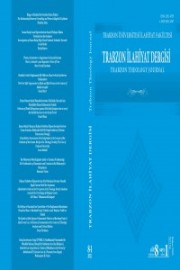Platon, Aristoteles ve Augustinus’ta Zaman Kavramı
Plato’s, Aristotle’s, and Augustine’s View of Time
Author(s): Ömer Faruk KaraköseSubject(s): Metaphysics, Ancient Philosphy, Ontology
Published by: Karadeniz Teknik Üniversites - İlahiyat Fakültesi
Keywords: History of Philosophy; Time; Plato; Aristotle; Augustine; Measure; Motion; Spirit;
Summary/Abstract: In this article, besides the common views adopted by Plato, Aristotle, and Augustine on time, the points where they differ from each other in terms of its existence and nature are evaluated. Plato and Aristotle developed a similar theory regarding time as a kind of number/measure based on motion. However, while Plato argues that time is created based on a mythological narrative; Aristotle, with a more scientific approach, clarifies that time is not created and, therefore, eternal. On the other hand, Augustine not only argues with theological concerns that time is created by God but also opposes the association of time with motion and claims that it exists in the human mind to measure the spirit in terms of memory, perception, and expectation. Augustine's emphasis on memory and expectation on time can be interpreted as the fact that Augustine regards time as a mental reality (subjective time). Keeping these in mind, in this study, it is claimed that ontological and theological concerns directly affect the understanding of the concept of time within the scope of three philosophers’ theories, and that time is grounded in different ways both in terms of its existence and reality.
Journal: Trabzon İlahiyat Dergisi
- Issue Year: 8/2021
- Issue No: 1
- Page Range: 75-104
- Page Count: 30
- Language: Turkish

